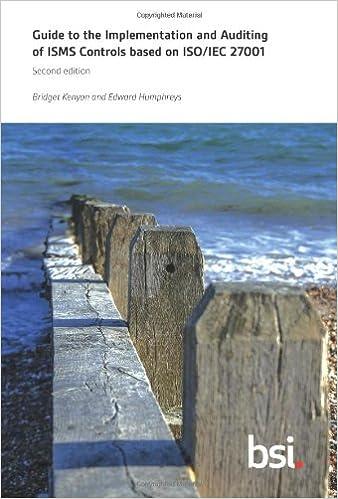Answered step by step
Verified Expert Solution
Question
1 Approved Answer
Question 1-3 QUESTIONS AND PROBLEMS 1. A group of smokers (Respondents) brought suit against tobacco producer Altria, alleging that they were misled by the Altria
Question 1-3 




QUESTIONS AND PROBLEMS 1. A group of smokers (Respondents) brought suit against tobacco producer Altria, alleging that they were misled by the Altria and other cigarette producers' (Peti- tioners) ads and labels on its cigarettes touting "light" and "low-tar." By covering filter ventilation holes with their lips or fingers, taking larger or more frequent puffs, and holding the smoke in their lungs for a longer period of time, smokers of "light" cigarettes unknowingly inhale as much tar and nicotine as do smokers of regular ciga- rettes. "Light" cigarettes are in fact more harmful because the increased ventilation that results from their unique design features produces smoke that is more mutagenic per milligram of tar than the smoke of regular cigarettes. The smokers argued that the tobacco companies violated the Maine Unfair Trade Practices Act (MUTPA) by fraud- ulently concealing that information and by affirmatively representing, through the use of "light" and "lowered tar and nicotine" descriptors, that their cigarettes would pose fewer health risks. The District Court entered summary judgment in favor of the tobacco companies on the ground that the state-law claim is preempted by the Federal Cigarette Labeling and Advertising Act. The Court of Appeals reversed that judgment, and the U.S. Supreme Court granted certiorari to review its holding that the Labeling Act neither expressly nor impliedly preempts state law. What should the court decide and why? [Altria Group, Inc. v Good, 555 U.S. 70 (2008)] 2. Mrs. Florence Dolan owned a plumbing and electric supply store on Main Street in Portland, Oregon. Fanno Creek flows through the southeastern corner of Mrs. Dolan's lot, on which her store is located. She applied to the city for a permit to redevelop her lot. Her plans included the addition of a second structure. The City Planning Commission granted Mrs. Dolan's permit but included the following requirement: Where landfill and/or development is allowed within and adjacent to the 100-year floodplain, the city shall require the dedication of sufficient open land area for greenway adjoining and within the floodplain. This area shall include portions at a suitable elevation for the construction of a pedestrian/bicycle pathway within the floodplain in accordance with the adopted pedestrian/bicycle plan. Mrs. Dolan maintained that the requirements were a taking of her property because she would be required to reserve a portion of her property for the pedestrian/bike path, and her plans would have to be redone to accom- modate the city's requirements. The city maintains that its requirements are all simply part of a redevelopment plan for the city and a means of working with the flood- plain created by Fanno Creek. Mrs. Dolan says has imposed additional expense and forced her to ded- icate a large portion of her lot to public use. Who is cor- rect? Is Portland taking property from Mrs. Dolan? Is the city required to pay compensation to her? [Dolan v City of Tigard, 512 U.S. 374 (1994)] the city 3. The Heart of Atlanta Motel, which has rooms avail- able to transient guests, is located on Courtland Street, two blocks from downtown Peachtree Street in Atlanta, Georgia. It is readily accessible to interstate highways 75 and 85 and state highways 23 and 41. The motel does advertise outside Georgia through various national advertising media, including magazines of national cir- culation, it maintains more than 50 billboards and high- way signs within the state, soliciting patronage for the motel; it accepts convention trade from outside Georgia; and approximately 75% of its registered guests are from out of state. Prior to passage of Title II of the Civil Rights Act, the motel had followed a practice of refusing to rent rooms to Negroes, and it alleged that it intended to continue to do so. The motel filed suit, challenging Congress for passing this act in excess of its power to regulate com- merce under Article 1, Section 8, Part 3, of the Constitu- tion of the United States. Section 201 of Title II provides, "All persons shall be entitled to the full and equal enjoyment of the goods, services, facilities, privileges, advantages, and accom- modations of any place of public accommodation, as defined in this section, without discrimination or segre- gation on the ground of race, color, religion, or national origin." Section 201(b) covers four classes of business establishments, each of which "serves the public" and "is a place of public accommodation": any inn, hotel, motel, or other establishment which provides lodging; (2) any restaurant, cafeteria; (3) any motion picture house; and (4) any establishment which is physically located within the premises of any establishment otherwise covered by this subsection. Is Title II of the Civil Rights Act constitutional? Is this case different from Ollie's Barbecue? [Heart of Atlanta Motel, Inc. v U.S., 379 U.S. 241 (1964)] 




Step by Step Solution
There are 3 Steps involved in it
Step: 1

Get Instant Access to Expert-Tailored Solutions
See step-by-step solutions with expert insights and AI powered tools for academic success
Step: 2

Step: 3

Ace Your Homework with AI
Get the answers you need in no time with our AI-driven, step-by-step assistance
Get Started


